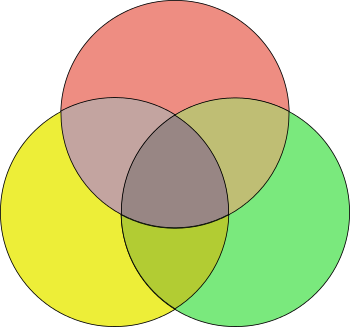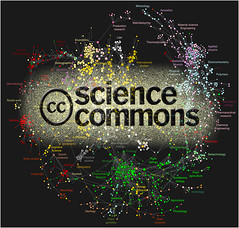
The following is a version of the text I spoke from at the STEPS 2015 Conference, Resource Politics, at a session on Open Science organised by Valleria Arza, where I spoke along with Ross Mounce and Cindy Regalado. This version is modified slightly in response to comments from the audience.
There aren’t too many privileged categories I don’t fall into. White, male, middle class, middle aged, home owner. Perhaps the only claim I could make in the UK context is not having a connection with Oxbridge. The only language I speak is English and I’ve never lived in a non-english speaking country, never lived outside of Australia or England in fact. What do I have to say about developing countries? Or transitional, or emerging or peripheral…all problematic terms rooted in a developed world, western, narrative.
I hope it is more than just a hand-wringing liberal response. I suspect all of us do, genuinely base our work on a conviction that we can make a difference for good. In this context we collectively believe that the critical tradition of scholarship developed in Western Europe can bring benefits to disadvantaged groups. And after all the resources to actually take action are in our hands or within our gift to influence. Something must be done. We can do something. Therefore we must do it.
Obviously this is an old critique and one that has shaped decisions about how to act. We seek to move beyond charity and paternalistic intervention to offering frameworks and taking consultative approaches. To requiring a deeper understanding of context. In my own work I’ve tried to focus on offering ideas about processes and implementation, not on what should be done. But my ideas are of course still trapped within the frameworks I work within.
Central to those frameworks for me is “Openâ€. I’m not going to seek to explain in detail what I mean by “openâ€. Nor am I going to provide a critical analysis of the issues it raises in a development context, or its dependence on western liberal democratic, or neoliberal, or even libertarian values. Others are better placed to do that. What I do want to propose is that “Open†in the sense that I mean it is a culture, and it is a culture deeply rooted in its particular (north) western historical context.
If you accept that Open is a culture then our traditional thinking would be that it is the product of a particular community. Or rather communities. Again the history is complex but we can identify a complex of groups, clubs if you like, that have grown up with their own motivations and agendas but have sufficient alignment that we can collect them together under the label of “Openâ€. “Open Sourceâ€, “Open Dataâ€, “Open Accessâ€, “Open Scienceâ€, but also perhaps “Open Governmentâ€, transparency and others. Often these groups are identified with a charismatic individual.
John Hartley and Jason Potts in their book Cultural Science, propose a shift in our usual way of thinking about these groups and their cultures, that is both subtle and to my mind radical. We would usually think of individuals coming together to form groups in a common interest (often framed as an political-economic analysis of the way the collective resources of the group combine to achieve action). The individuals in the group and their values combine to define the culture of the group.
Hartley and Potts invert this. Their claim is that it is culture that creates groups. This inversion, whether you take it at face value as a real description of causation, or simply as a useful way to reframe the analysis has an important consequence. It focuses the unit of analysis onto the group rather than the individual. Rather than asking how individual behaviour lead to the consequences of groups interacting, we ask how cultures do or do not align, reinforce or cancel out.
In the session at the Resource Politics Conference on Tuesday on Assessment of Assessments we heard how governance reflects the structural moves allowed within an institution and how the framing of a problem reflects (or creates) these structures. Martin Mahony spoke of certain framings as “colonising spaces†which I would in turn appropriate as an example of how adaptive cultural elements can be spread through their re-creation or co-creation by groups.
In any case take your pick. New model of how culture, groups, society and sociotechnical institutions that they co-create actually work and evolve, or a different framing that lets us tackle interesting problems from a new perspective. Either way, is it helpful? And what does it have to do with “development†or “sustainability†or “open†for that matter?
I think its useful (and relevant) because it lets us take a new view on the status of knowledge created in different contexts and it provokes some new ways of asking what we should do with the resources that we have.
First it gives us a license to say that some forms of knowledge are simply incompatible, growing as they do out of different cultures. But crucially it requires us to accept that in both directions – forms of knowledge from other cultures that are inaccessible to us, but also that our knowledge is accessible to others. It also suggests that some forms of compatibility may be defined through absence, exclusion or antagonism.
An anecdote: A few years ago I was working on a program focussing on Scholarly Communication in Sub-Saharan Africa. One striking finding was the way the communities of scholars, in disciplines that traditionally don’t communicate across groups, were actively engaging on social media platforms. Researchers from Russia, Iran, Iraq, Pakistan, India, Madagascar, Zimbabwe, Brazil, and Chile were all discussing the details of the problems they were facing in synthetic chemistry, a discipline that in my world is almost legendary for its obsessive individualism and lack of sharing. They shared the language of chemistry, and of English as the lingua franca, but they shared that with the absent centre of this geographical circle. Their shared culture was one of exclusion from the North Western centre of their discipline.
And yet, our culture, that of western scholarship was still dominant. I was struck yesterday in the “Assessment of Assessment” session focussing as it did on questions of transparency, engagement, and above all framing, that the framing of the session itself was not interrogated. Why, in an area focussed on building an inclusive consensus, is the mode of communication one of individual experts at the centre (as I am here on the podium) with questions to be asked, when allowed, from the periphery (you in the audience)?
Worse than that the system these chemists were using, ResearchGate is a western commercial infrastructures built from the classic Silicon Valley mindset, seeking to monetise, to in many ways to colonise, the interactions of these scholars who define themselves precisely through opposition to much of that culture. Is it possible to build a system that would help this group communicate within the scope of their culture but that doesn’t impose assumptions of our western culture? What infrastructures might be built that would achieve this and how would they be designed?
For Hartley and Potts the group, this level of analysis is one defined by shared culture. And of which cultures support groups which support the dynamic co- and re-creation of that culture. So another way of approaching this is to view them through the lens of the economics of clubs. What makes a club viable and sustainable? What goods does it use to achieve this? This group economics focus is interesting to me because it challenges many of our assumptions about the politics and economics of “Openâ€.
Rather than adopt a language of nationalisation of private goods: you journal publisher must give up your private property (articles) and transfer them to the public, you researcher must share your data with the world; we ask a different question – what is the club giving up and what are they gaining in return? Knowledge in this model is not a public good, but rather a club good – there is always some exclusion – that we are seeking to make more public through sharing. The political/economic (or advocacy) challenge is how to create an environment that tips the balance for clubs towards knowledge sharing.
These two questions – how can we support peripheral communities to co-create their own cultures without imposing ours and how we might change the economics of knowledge systems to favour investment in sharing – lead for me to an interesting suggestion and a paradox. What enabling infrastructures can be built and how can we make them as neutral and inclusive as possible while simultaneously embracing that anything built with western resources will be framed by our own cultures?
My stance on this is a re-statement of the concept from Zittrain, Benkler, Shirky and others that networks at scale can deliver new kinds of value. That the infrastructures we seek to build can tip the balance towards club investment in sharing if they provide mechanisms for clubs to gain access to networks. This is an architectural principle, that we can take a step up (or down if you prefer) identifying the common aspects of functionality required. It is also not new.
The new step is to adopt a principle of cultural engagement in governance, a means of – in the language of this conference – aligning the institutions that provide infrastructures and their governance and structures with the maximum possible number (and not power, not centrality) of cultures. The the criteria we use is one of maximising the number of productive interactions between cultures through the platforms we provide.
And this is what brings us back to Open, to what for me is the core of the philosophy, value system, or culture of Open Practice. Not that sharing outwards to the public is the target in itself but that it is through sharing that we create new opportunities for interaction and it is being open to contributions, to productive interactions that in my old world view creates value, but in this new framing promotes the “clashes of culture†that create new knowledge.



![Reblog this post [with Zemanta]](http://img.zemanta.com/reblog_e.png?x-id=b18c7e07-2046-4a8d-bbb2-5a2568efab73)